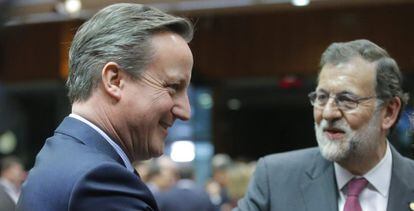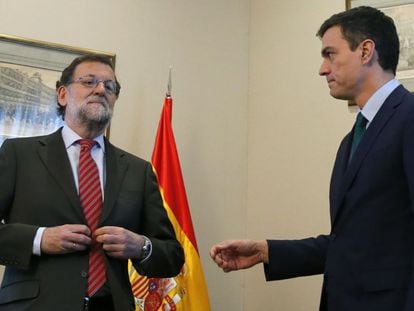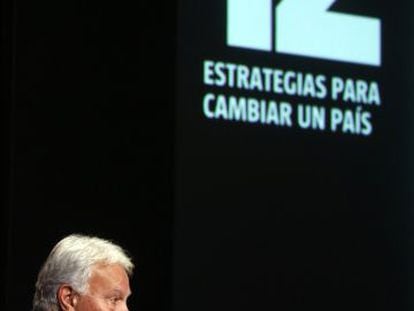Rajoy to Cameron: “Most likely there will be a new election on June 26”
Acting PM’s comments suggest he is unlikely to support an alternative government

In conversation with other European leaders on Thursday, acting Spanish Prime Minister Mariano Rajoy was heard saying that he thought it likely that a new general election would have to be held later this year, given that the December 20 polls were inconclusive. That means that the Popular Party (PP) politician, who won the most seats in the vote but fell short of a majority, is unlikely to support an alternative government at the upcoming investiture session, which will begin on March 2.
“The most likely outcome is that there will be an election on June 26,” Rajoy told British Prime Minister David Cameron via his interpreter.
“We have an investiture session in March and I don’t think it will be successful”
During the conversation, which was caught on nearby cameras and microphones, Rajoy explained to Cameron that the second and definitive investiture vote would take place on March 5.
Ahead of that session in Congress, Socialist Party (PSOE) leader Pedro Sánchez is trying to cobble together an alliance of emerging parties such as center-right anti-corruption group Ciudadanos and left-wing anti-austerity Podemos.
However, the negotiations have so far been unsuccessful, and the clock is ticking.
In the recording from Thursday, the following dialogue is audible between the Spanish and British politicians:
Rajoy: We have an investiture session in March and I don’t think it will be successful. The most likely outcome is that we will have a new election on June 26… that’s most likely.
Cameron: So it will be around the same date as our referendum on Europe?
R: Yes, yes, the same day! [laughs]
C: So you had elections at Christmas and now in summer. You’ve tried everything!
The acting PM also discussed Spain’s complicated political situation with the Estonian leader
The acting Spanish prime minister also discussed the complicated situation in the wake of the December election with the Estonian prime minister, Taavi Rõivas, also explaining to him that the most likely outcome would be a fresh vote.
Sixty days have passed since the elections, and Rajoy and the PP are without possible partners to form a government. On January 22, Rajoy declined the offer from King Felipe VI to form a government, given that the acting PM knew that he did not have the support to win the vote. He thus managed to avoid a congressional debate in which he would have received the invective and criticism of the other parties.
English version by Simon Hunter.












































